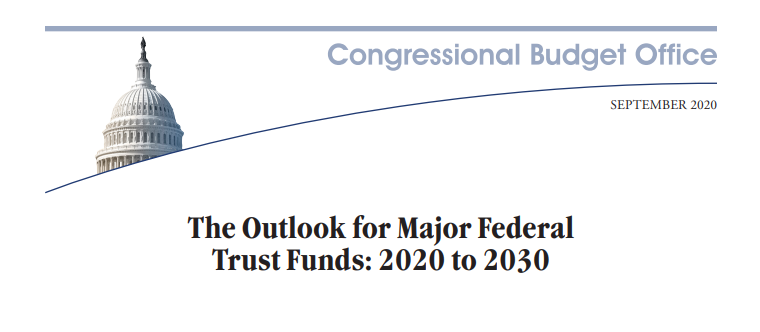The Congressional Budget Office (CBO) has issued the report below, estimating that the Medicare Trust Fund will become insolvent in 2024, two years sooner than the previous estimate, because of the pandemic. The Medicare Payment Advisory Commission (MedPAC) members have said that their recommendations to Congress to save the trust fund will be “bold.” MedPAC has warned Congress about the looming fiscal cliff for Medicare but most of their previous recommendations have not been implemented. MedPAC staff have suggested that insolvency could be avoided by increasing the payroll tax to 3.7% or by decreasing Medicare Part A spending by 17% or $1,000 per beneficiary per year. However, the latter number is only an estimate since the number of workers per Medicare beneficiary is shrinking, which means existing workers will bear an increasingly large financial burden to maintain Medicare.
There are, after all, only two ways to handle a crisis in any budget: 1. spend less money or, 2. get more money. Spending less on Medicare means limiting coverage (otherwise known as rationing). Getting more money means raising taxes.
This non-partisan CBO report is particularly relevant on the eve of an election with “Medicare for all” being seriously discussed, despite the fact the current Medicare program is going bankrupt. Countries with broad healthcare entitlement programs sustain them by both rationing care and levying high taxes on the population. Since the math works the same in every country, it is likely we will have to do both if we expand a program that is already headed for insolvency. Every working American is going to feel this in the pocketbook.
You can read the report below, or download it here.
56523-Trust-Funds
Dr. Fife is a world renowned wound care physician dedicated to improving patient outcomes through quality driven care. Please visit my blog at CarolineFifeMD.com and my Youtube channel at https://www.youtube.com/c/carolinefifemd/videos
The opinions, comments, and content expressed or implied in my statements are solely my own and do not necessarily reflect the position or views of Intellicure or any of the boards on which I serve.



